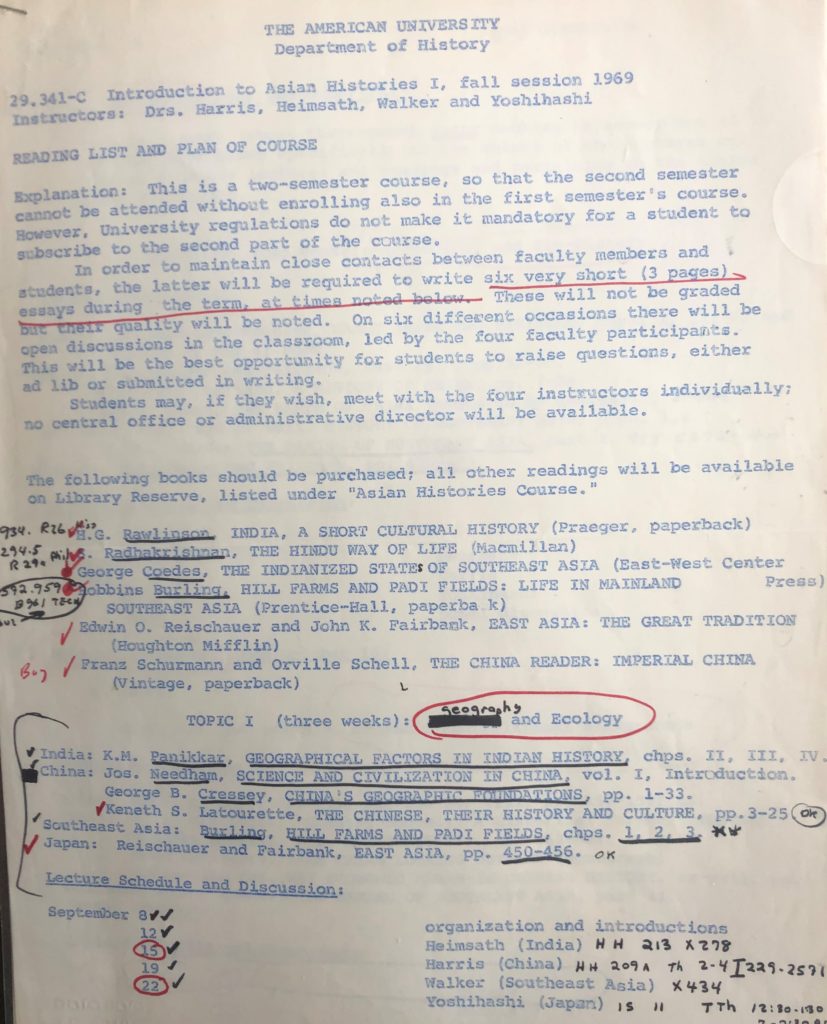
As an AU junior in the Fall of 1969, Jim Laurie took a course that inspired him: HIST 29.342-C: “Introduction to Asian Histories I.” The first of a two-semester series taught by four instructors, this course prompted Laurie to drop out of college and jump on a plane to Asia. “My classes at AU piqued my interest in Asia,” he said. “But textbooks were not enough. I had to see it for myself.” He would not return for four years, later graduating in 1973. “When I left AU, I was an ordinary undergrad,” he said. “But when I returned one professor referred to me as ‘a mature student who had seen the world.’”
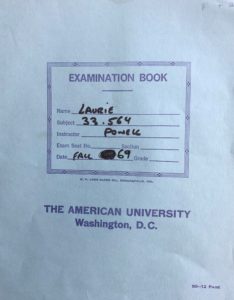
Laurie, who is waiting out the global COVID pandemic in rural Maine, has just published a book that reflects on his lengthy career in journalism and the many fascinating peoples and places he reported on both during and after his time at AU.
In The Last Helicopter: Two Lives in Indochina (FocusAsia, 2020), Laurie recounts the dramatic story of his time in Cambodia and Vietnam during and after the Vietnam War. After dropping out of AU, Laurie went to Japan, where he worked as a copy editor for English-language publications associated with Expo ’70, a world’s fair held that year in Osaka. 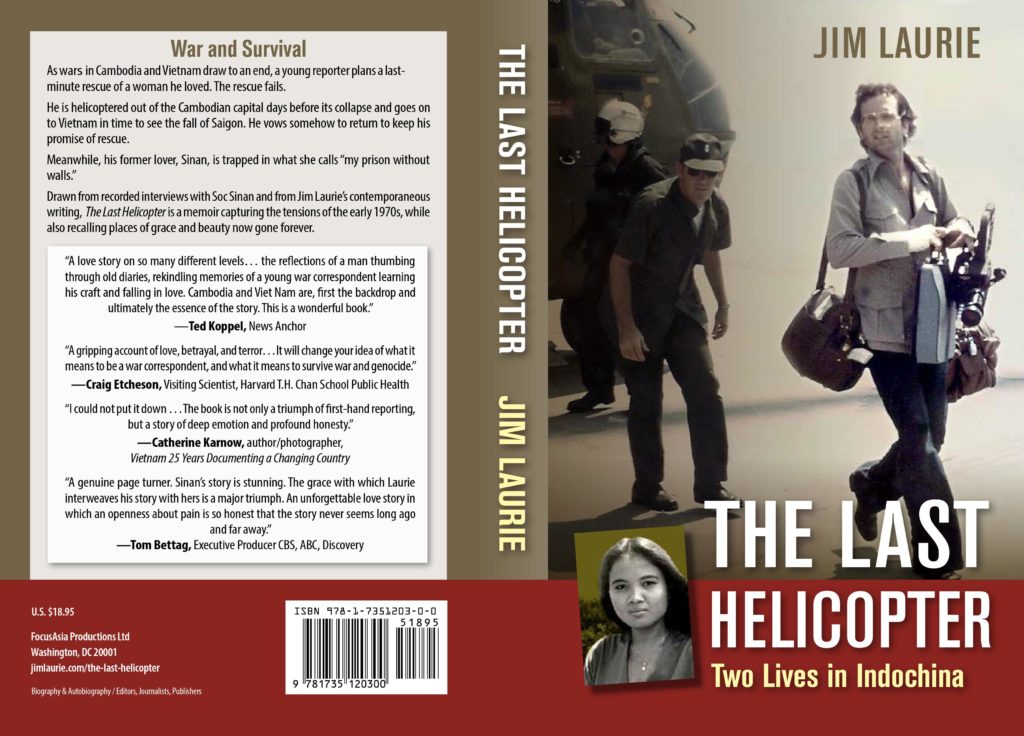 Then after a brief stint in Hong Kong, where he realized the impossibility of gaining entry to Maoist China, Laurie was lured to Saigon by the offer of $250 per week to cover the Vietnam War for a small radio news network owned by Metromedia. Days later he was on his way to Phnom Penh after President Nixon launched a military “incursion” widening the war into Cambodia. The Last Helicopter narrates the next five years, during which he fell in love with a Khmer woman named Soc Sinan, returned to Vietnam in 1975 to report on the Communist takeover of Saigon, and worked tirelessly to extricate Soc Sinan from the killing fields of Cambodia. The book alternates between two unique perspectives. There is the account of the young reporter learning his craft and deepening his knowledge of Indochina. In contrast to that, there is the compelling first-person account of Soc Sinan as she struggles to survive what she called her “prison without walls” under the genocidal Khmer Rouge regime.
Then after a brief stint in Hong Kong, where he realized the impossibility of gaining entry to Maoist China, Laurie was lured to Saigon by the offer of $250 per week to cover the Vietnam War for a small radio news network owned by Metromedia. Days later he was on his way to Phnom Penh after President Nixon launched a military “incursion” widening the war into Cambodia. The Last Helicopter narrates the next five years, during which he fell in love with a Khmer woman named Soc Sinan, returned to Vietnam in 1975 to report on the Communist takeover of Saigon, and worked tirelessly to extricate Soc Sinan from the killing fields of Cambodia. The book alternates between two unique perspectives. There is the account of the young reporter learning his craft and deepening his knowledge of Indochina. In contrast to that, there is the compelling first-person account of Soc Sinan as she struggles to survive what she called her “prison without walls” under the genocidal Khmer Rouge regime.
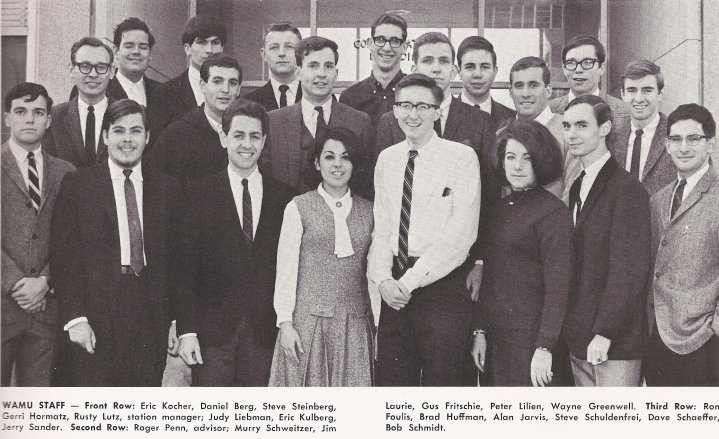
Laurie’s career in journalism put him on the front lines of the wars in Southeast Asia. “Ironically, I probably saw more combat in Vietnam as a reporter than if I had been drafted into the military,” he said. Laurie’s time at AU as an undergraduate student in history had helped prepare him for the real-world encounters he would experience abroad. Back then, Prof. David Brandenburg, for whom the annual Brandenburg Lecture is named, was chair of the history department. He encouraged Laurie to focus on Asian studies, particularly the French colonial period in Indochina. While taking history courses, Laurie also worked part time for WAMU, the local campus radio station that would later gain a national profile through its affiliation with NPR. “I was a student who had to work as well as study,” he says, admitting that he was not on campus all that much. AU’s campus looked very different back then, Laurie recalls, with today’s dormitories under construction and overflow students like himself obliged to live in the McLean Gardens neighborhood just south of the university, down the hill along Massachusetts Avenue.
After his turbulent time in Cambodia and Vietnam, Laurie later turned his attention back to China, which was then undergoing the early phases of Deng Xiaoping’s reforms and pursuing renewed engagement with the capitalist world.
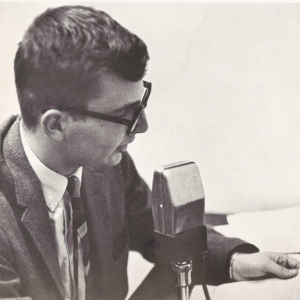
He first visited China in 1978, got the opportunity to interview Deng in 1979, and accompanied Deng’s delegation to the United States on the Chinese leader’s historic four-city visit in February. Over the next two decades, Laurie would meet or interview numerous influential Chinese politicians, including Hu Yaobang, Zhao Ziyang, and Jiang Zemin. He is currently writing a second memoir chronicling China’s opening up and contrasting it with the nation today and his most recent wanderings across China in late 2019. Reflecting on a lengthy and decorated career, Laurie points to the Asian history course he took way back in 1969 at AU. “I just wanted to take a path less traveled,” he observed, “and that’s why I went into Asian studies as an undergrad.”